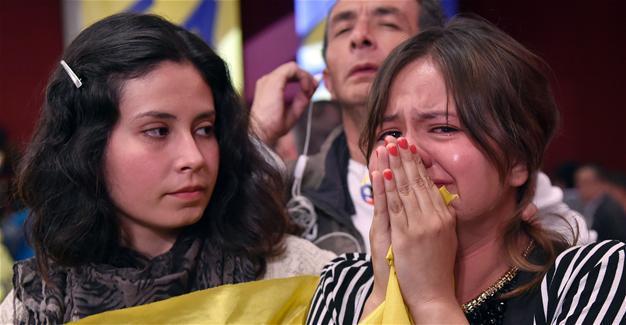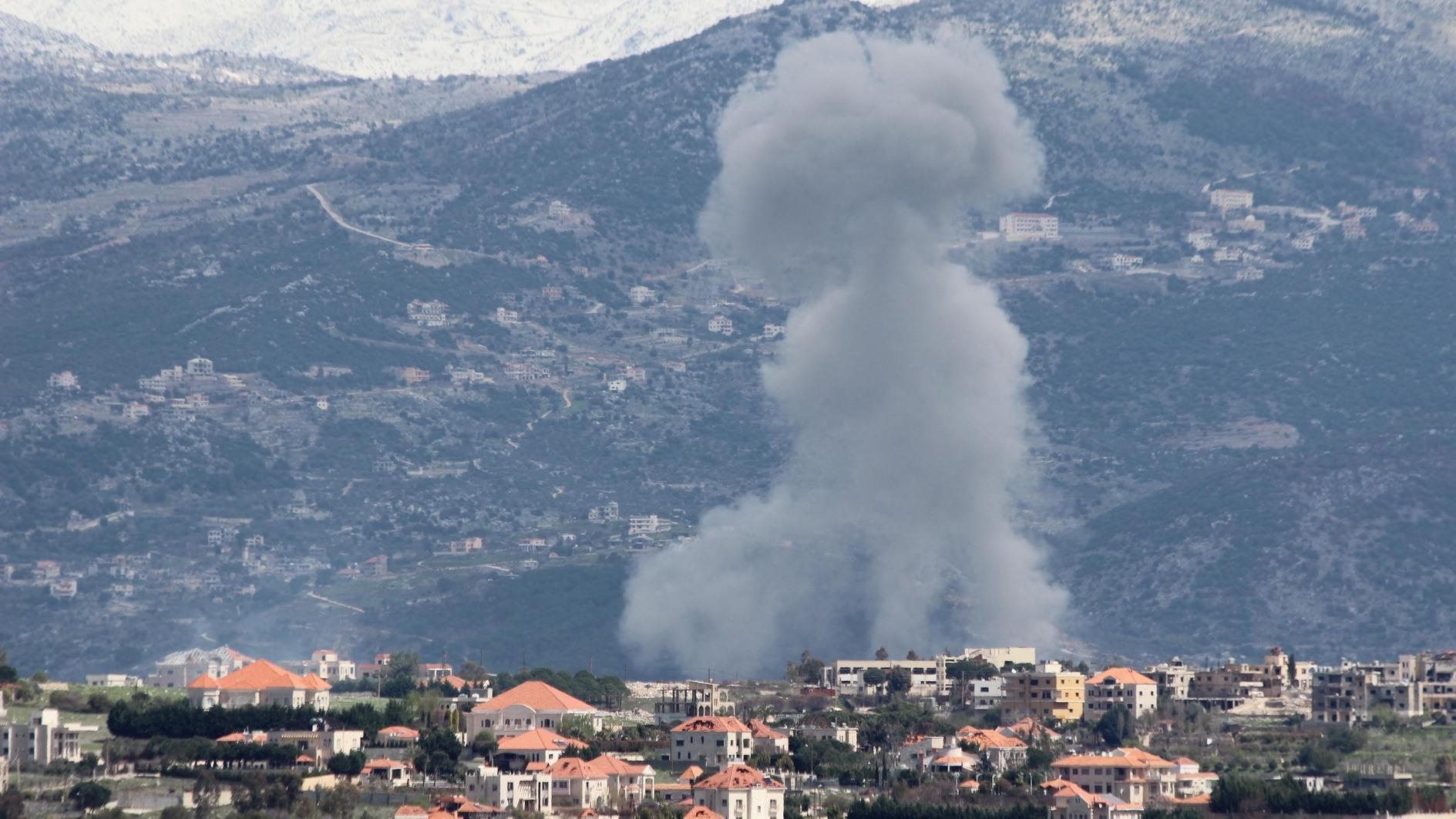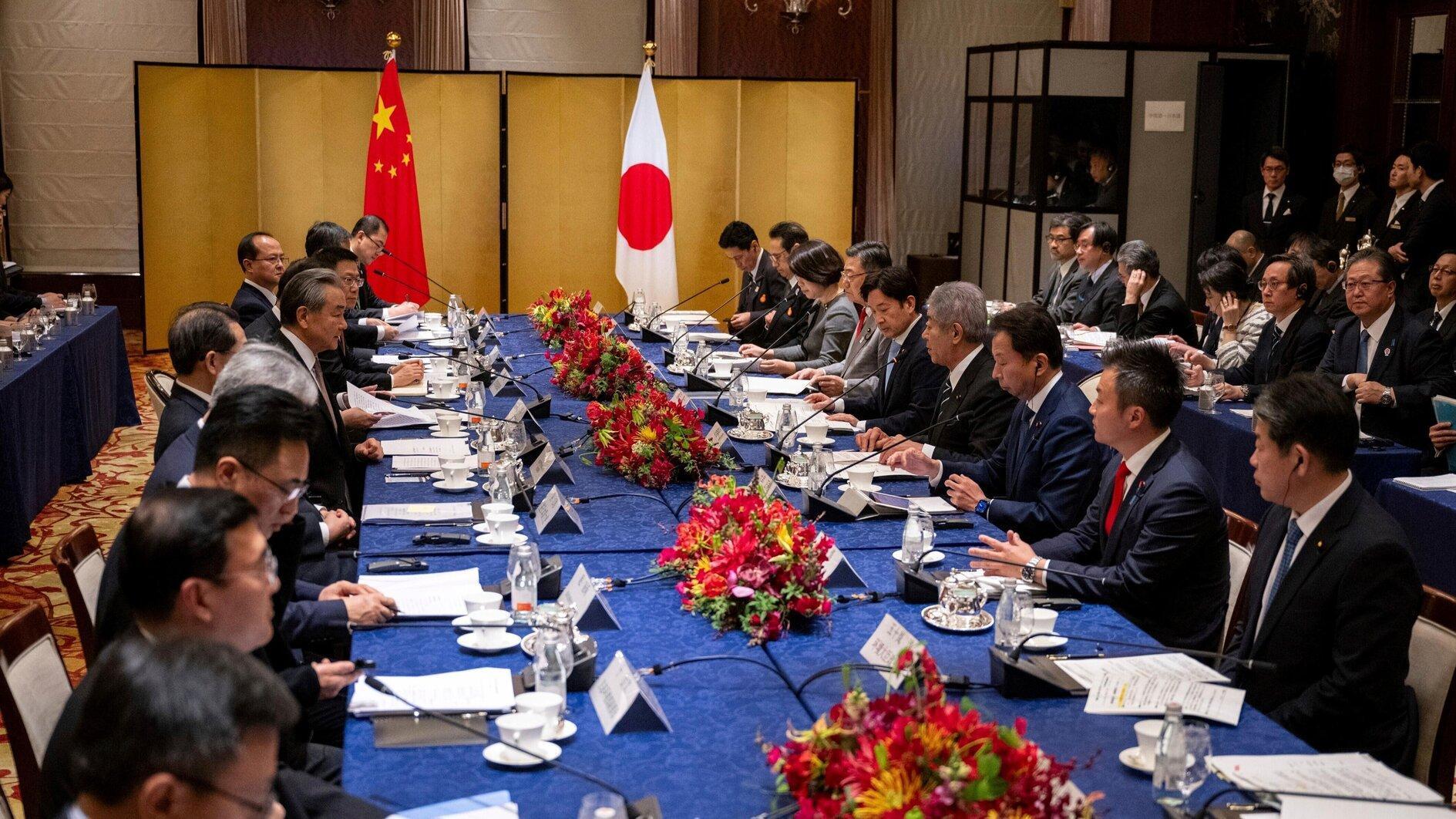Colombia seeks reviving peace after shock vote
BOGOTA

AFP photo
Colombia’s government and Marxist FARC guerrillas seek to scramble to revive a plan to end their 52-year war after voters rejected the hard-negotiated deal as too lenient on the rebels in a shock result that plunged the nation into uncertainty.Putting on a brave face after a major political defeat, President Juan Manuel Santos offered hope to those who backed his four-year peace negotiation with the Revolutionary Armed Forces of Colombia (FARC) in Cuba.
Latin America’s longest conflict has killed 220,000 people.
“I will not give up, I will keep seeking peace until the last minute of my term,” he said moments after losing the Oct. 2 plebiscite to those who want a re-negotiation of the deal or an obliteration of the FARC on the battlefield.
Santos, whose term ends mid-2018, was scheduled to meet all political parties later in the day on Oct. 3.
He is also sending lead government peace negotiator Humberto de la Calle back to Havana to speak to the FARC leadership.
Rodrigo Londono, the top FARC commander better known by his nom de guerre Timochenko, also offered reassurance the rebels remain committed to becoming a peaceful political party.
“The FARC reiterates its disposition to use only words as a weapon to build toward the future,” Timochenko said after the result. “Count on us, peace will triumph.”
Disappointed Latin American neighbors urged Colombia not to give up on peace. With Chile, Cuba, and Venezuela acting as guarantors and observers of the negotiations in Havana, the region had been closely involved with the deal.
“We’re saddened by the slim victory for ‘No’,” said Ecuador’s Foreign Minister Guillaume Long, after the peace deal was rejected by a razor-thin margin of less than half a percentage point or only 54,000 votes.
“Colombia must keep seeking the road to peace.”
Colombians voted 50.21 percent to 49.78 percent against the accord, according to results published online with more than 99.9 percent of votes counted.
Turnout for the vote was a paltry 37 percent, reflecting some apathy from “yes” supporters who had assumed an easy win plus bad weather that deterred voters on the day.
Following the result, peace researchers dropped Colombia from a list of favorites for the Nobel Peace Prize.
Santos, 65, who was not obliged by law to hold a plebiscite, had said there was no Plan B for the failure of the peace vote, but now appears ready to consider options.
Colombians, even those who backed the “No” vote, expressed shock at the outcome and uncertainty about the future.
“We never thought this could happen,” said sociologist and “No” voter Mabel Castano, 37. “Now I just hope the government, the opposition and the FARC come up with something intelligent that includes us all.”
The peace accord reached last month and signed a week ago offered the possibility that rebel fighters would hand in their weapons to the United Nations, confess their crimes and form a political party rooted in their Marxist ideology.
















